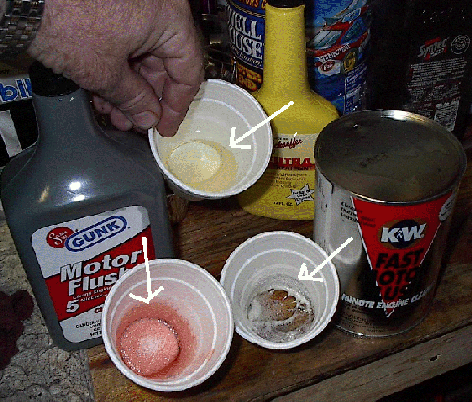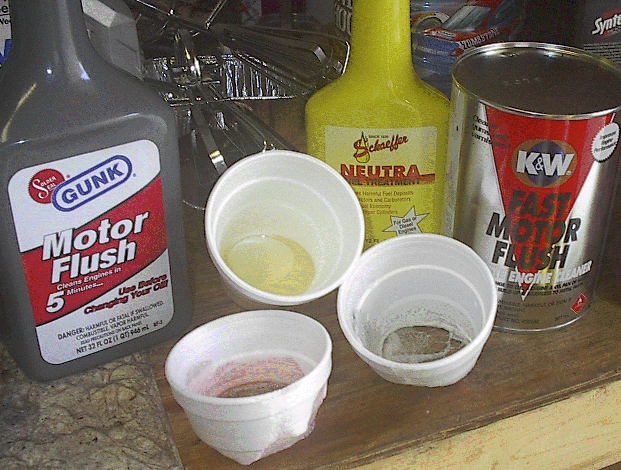Terry and Others - (Regarding Natural esters)
Some time ago I posted under Interesting Articles the following thread on esters:
http://theoildrop.server101.com/cgi/ultimatebb.cgi?ubb=get_topic;f=4;t=000056
Combinations of acids and alchohols are reacted to form what is commonly known as esters. When the esters gets oxidized under extremely high temps, only then will the components separate into alcohol and acids again, but the acids are weak acids even then.
Also, at this website, there are interesting links to naturally derived crop oils as well.
http://www.fhsu.edu/agriculture/oilcrops.htm
Mobil used an acid derived from cococnut oil and built an ester upon it for their Mobil 1 Tri-syn product.
The Germans in WWII found that the oil of castorbeans made a synthetic lubricant, until it oxidized and then turned into crud. What they later discovered was that the castorbean contained a natural ester and glycerine; it was the glycerine that accelerated oxidation. When they separated the castor acid from the glycerine, and then reacted an alcohol with the acid, they came up with one of the first ester lubricants known to man. What they didn't know was that secretly, Standard Oil and Union Carbide were doing the same thing for the Allies and had made various synthetic lubricants before the Germans really needed them.
I noticed that there was a lot of discussion on solvents in these threads and I would like to comment if I may. In the Oxford Dictionary of Chemistry, a solvent is "a liquid that dissolves another substance or substances to form a solution." Detergent/Dispersant additives would fall into this category as well.
There are solvents that are both polar and non-polar. Solvents such as benzene, carbon tetrachloride, phenol, hexanes, alcohols, and others in this category are non-polar.
Esters are very polar and are added to both synth and conventional oils to mix additives. Take a common additive such as ZDDP, which is usually introduced as a salt of ester and is an anti-wear, anti-oxidant, additive, extreme pressure (boundary) addtive. The polar nature of the ZDDP ester "seeks" out metal ions and bonds to them, forming a protective layer. Moly and other boundary additives do the same.
The bottom line is that all the chemicals above are solvents. What they react to, dissolve with or put into solution, and how fast they react, depends upon the nature of the solvent and what they are seeking to dissolve.
Whether you use an ester, or an alcohol, or an aromatic hydrocarbon, they all will dissolve some substance and put something into solution. Its a matter of degree.
Now naturally derived esters do have one advantage over aromatic hydrocarbons, they are generally more biodegradable; AKA, more "environmentally friendly."
[ September 14, 2002, 01:16 AM: Message edited by: MolaKule ]
 customer of mine and is not a sales person for Schaeffers.
customer of mine and is not a sales person for Schaeffers.




